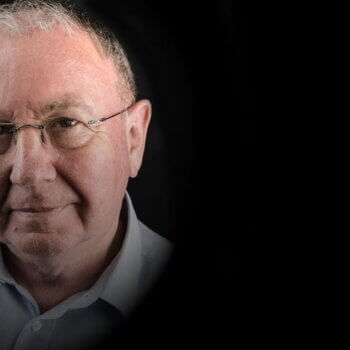(Women on Top in Tech is a series about Women Founders, CEOs, and Leaders in technology. It aims to amplify and bring to the fore diversity in leadership in technology.)
Here is my interview with Grace Park, Co-Founder and President at DocDoc. Grace Park is a professional with +19 years of experience, 12 of which have been spent in the Asia Pacific region leading pharmaceutical, medical device and digital health companies. She began her career as a Military Intelligence Officer after graduating with Honors from the US Military Academy at West Point and held various posts over her five years of military service. She left the Army with the rank of Captain. Grace has dual degrees from Harvard Business School and Harvard’s Kennedy School of Government.
What makes you do what you do?
“From pain, comes purpose.” This saying rings true to DocDoc’s mission. When the head liver surgeon at a respectable hospital in Singapore broke the news that our ‘healthy’ 3-month old daughter needed to be admitted to the hospital immediately for surgery because her liver was failing, my husband, Cole Sirucek, and I had so many questions. How many times did he do a liver transplant? How much will it cost? What were his outcomes? The doctor was visibly uncomfortable to answer any of these questions. My instinct – and having +10 years of experience of working closely with doctors from the pharmaceutical and medical device sectors – led me to believe that he was not the right doctor for our daughter. Our search for the right doctor began. We found a liver surgeon who is one of the pioneers of live liver transplants, and he had the highest volume worldwide as he did thousands of these procedures over decades. Plus, he was 40% less expensive than what the first surgeon was quoting us!
We had turned around from having the worst customer experience at a most vulnerable time in finding the right doctor. What we do at DocDoc is to help other patients in the doctor discovery process by providing meaningful data points so that they can make informed decisions.
How did you rise in the industry you are in?
I started on the corporate side of healthcare with my CEO of a top 10 global pharmaceutical company as a sponsor. He was a former military officer and hired me as a Marketing Manager. Unlike many others, he translated my five years of service as a military officer after graduating from the United States Military Academy at West Point as valuable operational experience to contribute and lead in his organization. That belief in me was incredibly motivating and kept me focused and disciplined throughout the years. In looking back, there are so many factors that contributed to my journey from Marketing Manager to Managing Director.
The short list would include:
1) Being in a sector in which there are tremendous opportunities to make a significant impact.
2) Working with talented colleagues to create high performing teams.
3) Aiming to set the example of never giving up.
Why did you take on this role/start this startup especially since this is perhaps a stretch or challenge for you? (or viewed as one since you are not the usual leadership demographics)
Firstly, I would say that there is no “usual” entrepreneur. The virtue of entrepreneurship is that anybody is welcomed to try.
The lack of transparency in healthcare is not a local issue but a universal problem. The world needed a solution and Cole, as DocDoc’s other co-founder, and I found us at a place and time to make it happen as he has a background in technology investments and I have a background in healthcare.
We could have just waited for someone else to do something about this problem. We were asking ourselves the questions, “If not now, when? If not us, who?”
Do you have a mentor that you look up to in your industries or did you look for one or how did that work?
There are many mentors whom I’ve had a wonderful opportunity to learn from throughout my professional life.
One of note is Bob McDonald, who was the Chairman and CEO of Proctor & Gamble. He most recently served as President Obama’s Secretary of Veterans Affairs, which arguably manages the world’s largest health system.
How did you make a match and how did you end up being mentored by him?
We met in Singapore several years ago as he served on the Singapore International Advisory Council.
There is some luck to it – being at the right place at the right time. Once there, it is about having the courage to speak to such a luminary!
We seem to have some commonalities that connected us: a belief in God which shapes our values; a personal mission to develop as leaders of character; and a hope to use our talents to the fullest to make a significant and positive impact in our societies. It’s been wonderful to call Bob a friend and a mentor.
Now as a leader how do you spot, develop, keep, grow and support your talent?
There are many articles and books about each of these skill sets but I believe that the principles that I learned as a young 21-year-old platoon leader has applied well when I led teams in my corporate role and continues to do so in the start-up realm. As a leader, it is important to understand what makes your employees tick and what are their aspirations and to develop plans on how you can help them reach their goals.
Do you consciously or unconsciously support diversity and why?
I support diversity and thankfully without requiring a quota, DocDoc is evenly split between male and female employees based on merit. We are present in multiple countries throughout Asia so by default, we are diverse based not only on gender but also on many other dimensions. Healthcare is an attractive sector for women so it is wonderful to have a sizeable talent pool.
What is your take on what it takes to be a great leader in your industry and as a general rule of thumb?
Distilling down to the top three, firstly it is about servant leadership. The leader’s primary role is to serve others – customers, employees, and any other stakeholders. The converse to this are those with overinflated egos and from what I’ve seen first-hand, they tend to blow up. Secondly, the great ones have more courage than fear in taking big risks especially in an industry that is highly entrenched in traditional and conservative ways. It does take guts to challenge the powerful groups that have kept the sector opaque and allergic to any transparency. Lastly, the digital health start-up world is equivalent to the “ultra” in ultramarathons so perseverance matters. Believe in your purpose, your team, and your good self.
Advice for others?
My belief is that when you fall in love with a mission that is far greater than yourself, you tap into a deeper, more profound source of motivation. There you will find what is worth fighting for!
To learn more about DocDoc, please see https://www.docdoc.com.
I am a huge fan and cheerleader of Women Leaders — If you know of an AMAZING Woman Founder, CEO, Leader in Tech or you are one yourself — Write me here.
AMPLIFY Conscious Business Leadership with me.






























